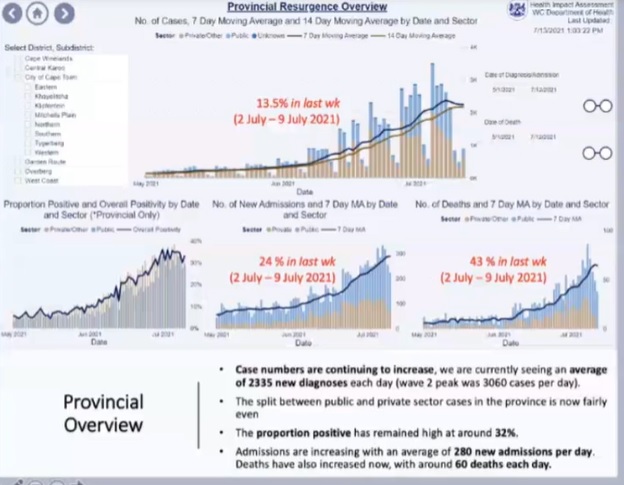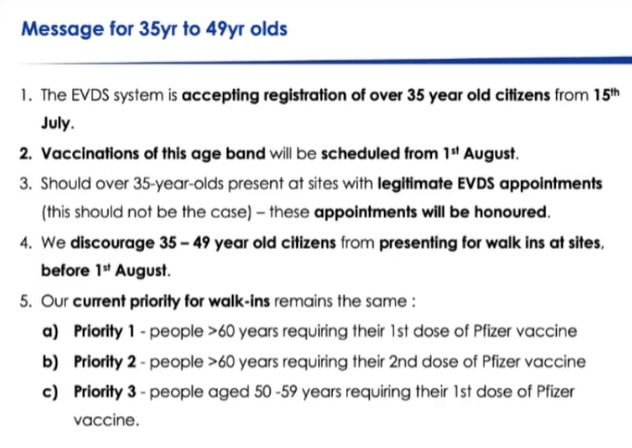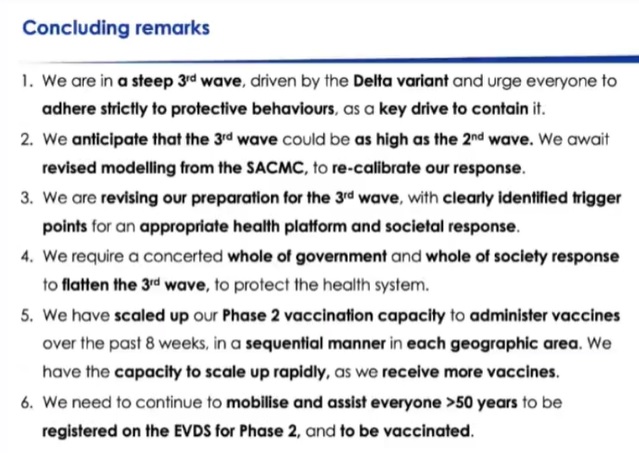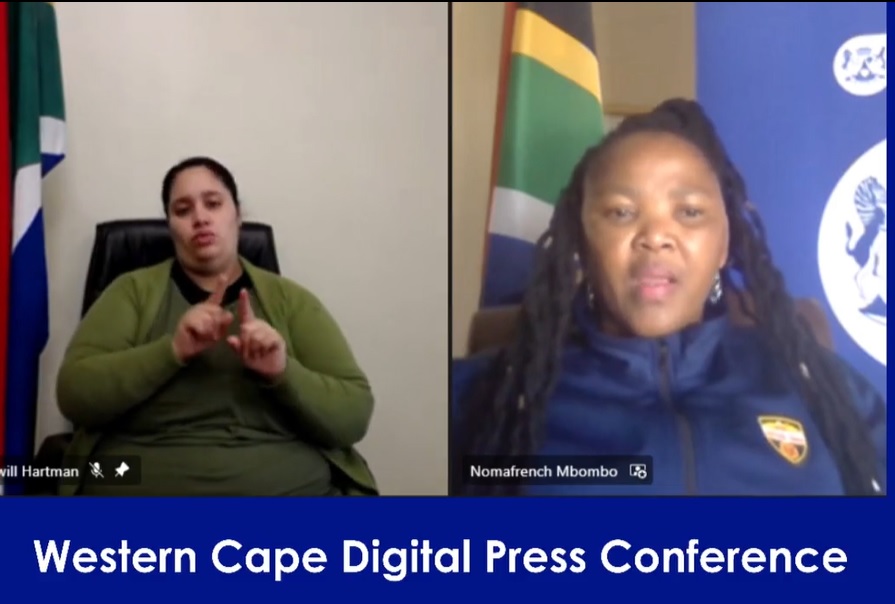WESTERN CAPE NEWS - The Western Cape has been spared the recent looting of businesses as seen in KwaZulu-Natal (KZN) and Gauteng, but the situation has an impact on the whole system, including the Western Cape vaccination programme.
In a digital conference earlier today, Western Cape Premier Alan Winde said the province's ability to combat Covid-19 has certainly been affected by the wanton looting and destruction in KZN.
"We are concerned about the taxi violence too," he said. "We are looking at the implications - can we help in any way, and what can we do in our region?" An assessment of the type of products the WC would not be able to procure from KZN - such as yeast - is currently underway. "
Apart from Covid-related medicines, a number of other medicines are also at risk due to the looting of the Cipla plant [a major manufacturer of generic drugs]," said Winde.
Consumer journalist Wendy Knowler of Times Live reported earlier today that looters have stolen fridges full of insulin, which diabetics need to survive, along with ARVs for HIV-positive people, cancer medication, tuberculosis medication and more. Apart from the Cipla plant, two huge distribution warehouses, VPD and Pharmed, have also been looted.
Media release by Premier Winde at his weekly digital press conference.pdf
Provincial Minister of Health Dr Nomafrench Mbombo confirmed that the domino effect of things happening elsewhere, especially in the health system, might also affect us.
"Covid-related meds that have been stolen and vandalised, will have an impact on the Covid outbreak clusters. Some of the GP surgery rooms are in malls. Outlets such as Clicks and Dis-Chem have also been affected. The whole vaccination process in these provinces will be affected and have an effect on the rest of the country."
Mbombo said the Groote Schuur Hospital in Cape Town has seen 10 gunshot victims over the last 24 hours, due to incidents of taxi violence. "Some required emergency procedures. While we deal with Covid there are many other things going on at the back. Staff have to go to work from areas that are affected [by taxi violence], or travel through areas that are affected. This will have a domino effect on the health system. Staff need to go home. The issues of trauma and violence have a huge impact on the whole healthcare service," said Mbombo. "People need to create a safe passage for health workers. It is crucial. The health system affects everyone."
Vaccinations
Head of the Western Cape Department of Health Dr Keith Cloete said the province is truly entering a period that starts the acceleration towards a peak, with a significant increase in hospitalisations over the last two weeks.
However, in Gauteng the reproduction number of the virus is currently decreasing.
Cloete said the safeguarding of healthcare workers is a huge priority, since they are the backbone of the healthcare system.
Out of a total of 34 000 healthcare workers in the province, 68% have been vaccinated. Almost 200 000 individuals in the Western Cape have been fully vaccinated up to date (one dose J&J or second dose Pfizer), with the largest number of people receiving vaccinations on 14 July.
"Vaccination is a choice. We provide people with information and try to work with their fears and address their concerns," said Cloete. "The second vaccination dose gives you maximum protection. Our complete call for everyone is to get their second dose."
Mbombo said if you are over 60 there is no reason not to be vaccinated. "You are now our priority," she said. "If the ballot papers can reach everyone, so can the healthcare workers. We don’t want anyone to be left behind."
Winde said the hospital numbers are still climbing, and asked the public to “keep on doing what you are doing” to flatten the curve of the third wave. He thanked the police and neighbourhood watches for their help to maintain the calm.
• With the current alcohol restrictions the Western Cape experiences a decrease of over 33% in weekend trauma cases.






'We bring you the latest Garden Route, Karoo, Hessequa news'
















